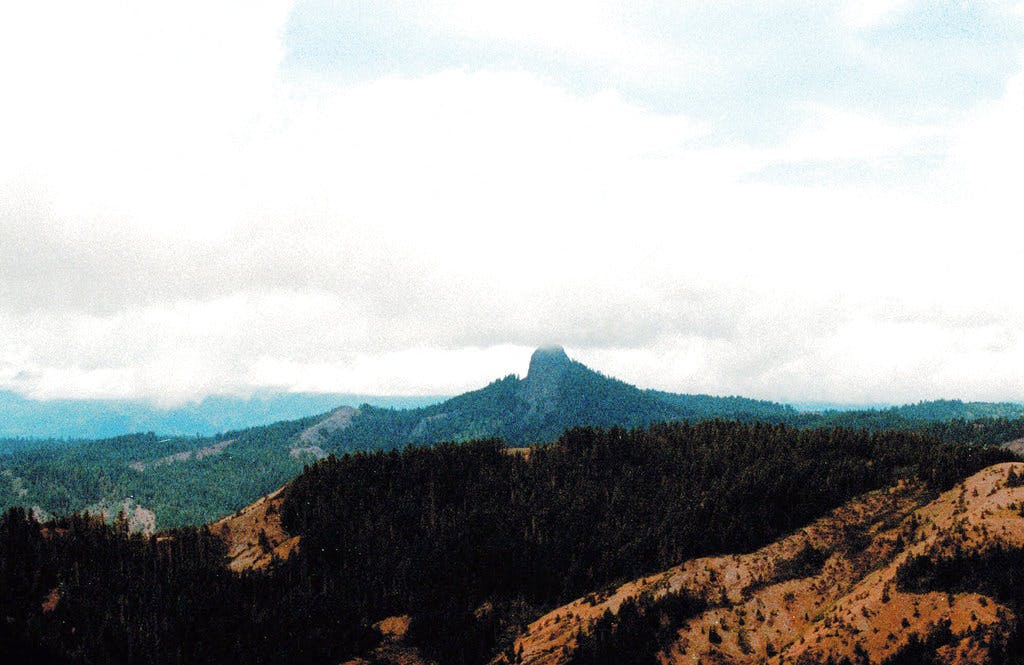Biden Is Bidding To Use ‘Antiquities Act’ To Bar Logging and Mining on Public Lands
‘Who makes the laws regarding federal land management, Congress or the Executive Branch?’

It can be hard to see the forest for the trees when it comes to curbing the excesses of the regulatory state. That’s in part because federal bureaucrats are so used to bending the letter of the law to meddle in the economy. All the more reason for the Supreme Court to take a case that would stop President Biden from misusing a 1906 law, the Antiquities Act — meant to protect historic sites from artifact looting — to bar logging and mining on public lands.
The Nine will first consider on Friday whether to take the case, American Forest Resources Council v. United States. The dispute is one that “all Americans should care about,” the council’s president, Travis Joseph, has said. That’s because it could help decide “who makes the laws regarding federal land management, Congress or the Executive Branch,” he added. The question, he said, “gets to the heart of our democracy and the separation of powers.”
The council is an Oregon-based trade association representing woodland owners and the timber industry. Their members’ livelihoods are threatened by the attempt, first launched by the Obama administration, to limit logging on millions of acres of public land in Western Oregon. A 1937 law set the land aside as “a permanent trust for local governments” and mandated that the land be used for “permanent forest production,” the council says.
The lands in question had been owned by the railroad industry for decades, but were taken back by Uncle Sam in the 20th century. The 1937 law was a concession to local governments, the nearby counties reckon, because if the land had stayed in private hands, it would have provided “an economic base for private industry and a tax base for local governments.” The federal takeover “deprived Western Oregon of part of its economic foundation,” they say.
The arrangement worked well for decades, the council says, because the forests were logged on a “sustained-yield” basis, meaning the annual harvest does not exceed the trees’ growth. This enabled the region to maintain “healthy and resilient forests,” the council explains, while also “providing sustainable economic opportunities” in Western Oregon’s rural communities. This delicate balance, though, was set off course at the end of the Obama administration.
Enter the Antiquities Act of 1906, which was intended by Congress to protect ancient artifacts and makes it illegal to “appropriate, excavate, injure, or destroy any historic or prehistoric ruin or monument.” The law was “deemed necessary,” the Theodore Roosevelt center explains, following years of “looting, desecration, and destruction” of historic Native American landmarks in the Southwest, like Chaco Canyon and Cliff Palace.
Yet the law also hands to presidents the power to “declare” public lands “to be national monuments,” with the caveat that these “shall be confined to the smallest area compatible” for the “objects to be protected.” That provision, it seems, has proven an irresistible temptation for presidents and bureaucrats who have stretched the meaning of the law to the breaking point in an effort to crimp economically useful activity on America’s public lands.
FDR, for one, rode roughshod over Congressional and local opposition to establish the Jackson Hole National Monument in Wyoming and vetoed a bill that would have nixed the move, saying it was “an outstanding example of a valley formed by block-faulting and glacial action.” Despite relying on the Antiquities Act, though, his veto message was mum on any artifacts. President Clinton relied on similarly flimsy claims to create 19 national monuments.
President Obama surpassed him, making 29 new monuments and enlarging five more, including the land in Western Oregon. The intrusion came despite a “clear congressional mandate,” the forest council argues. Mr. Biden is defending the move in the courts. This kind of executive overreach is ripe for review by the Supreme Court — and by Congress, which would be wise to revise the Antiquities Act to rein in future presidents from making similar land grabs.

